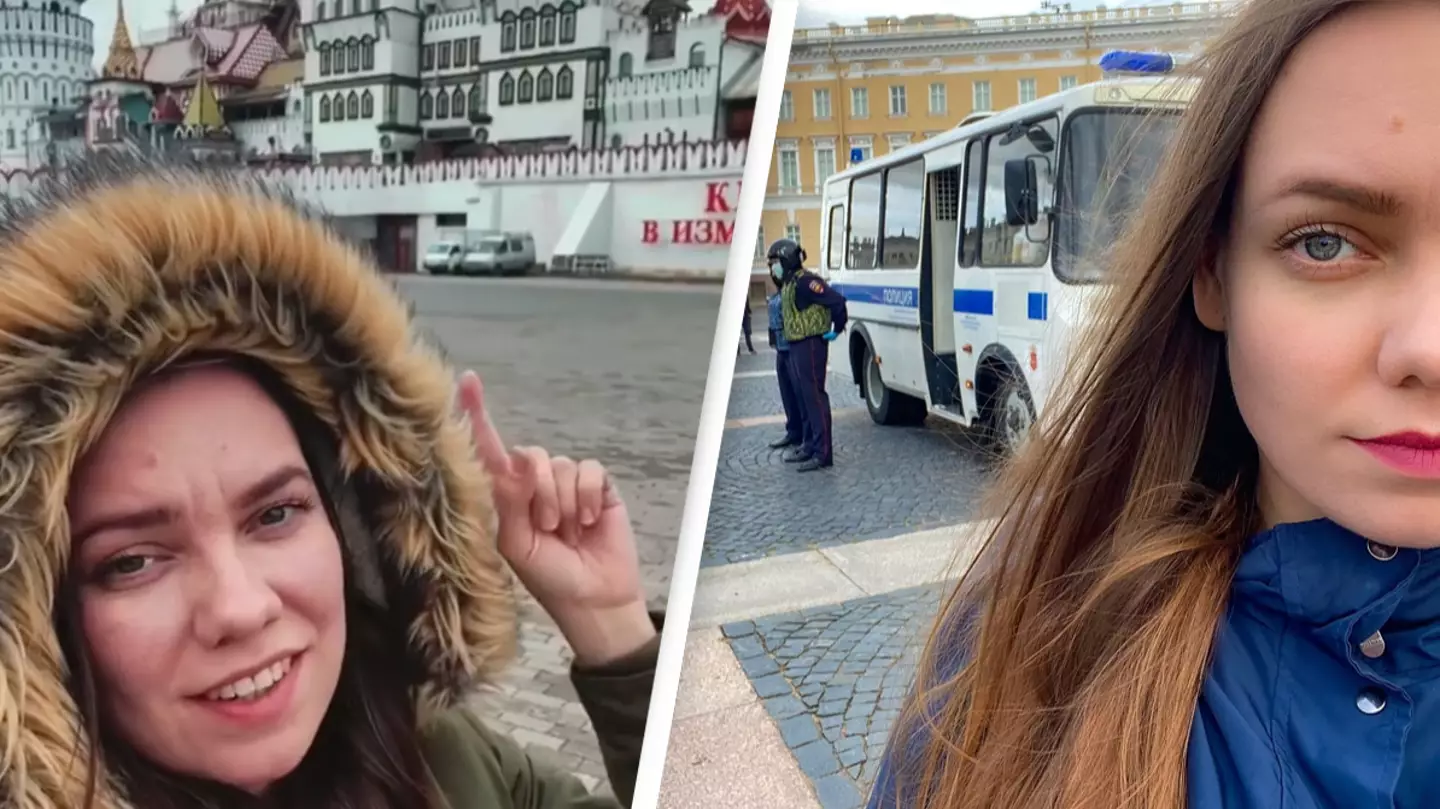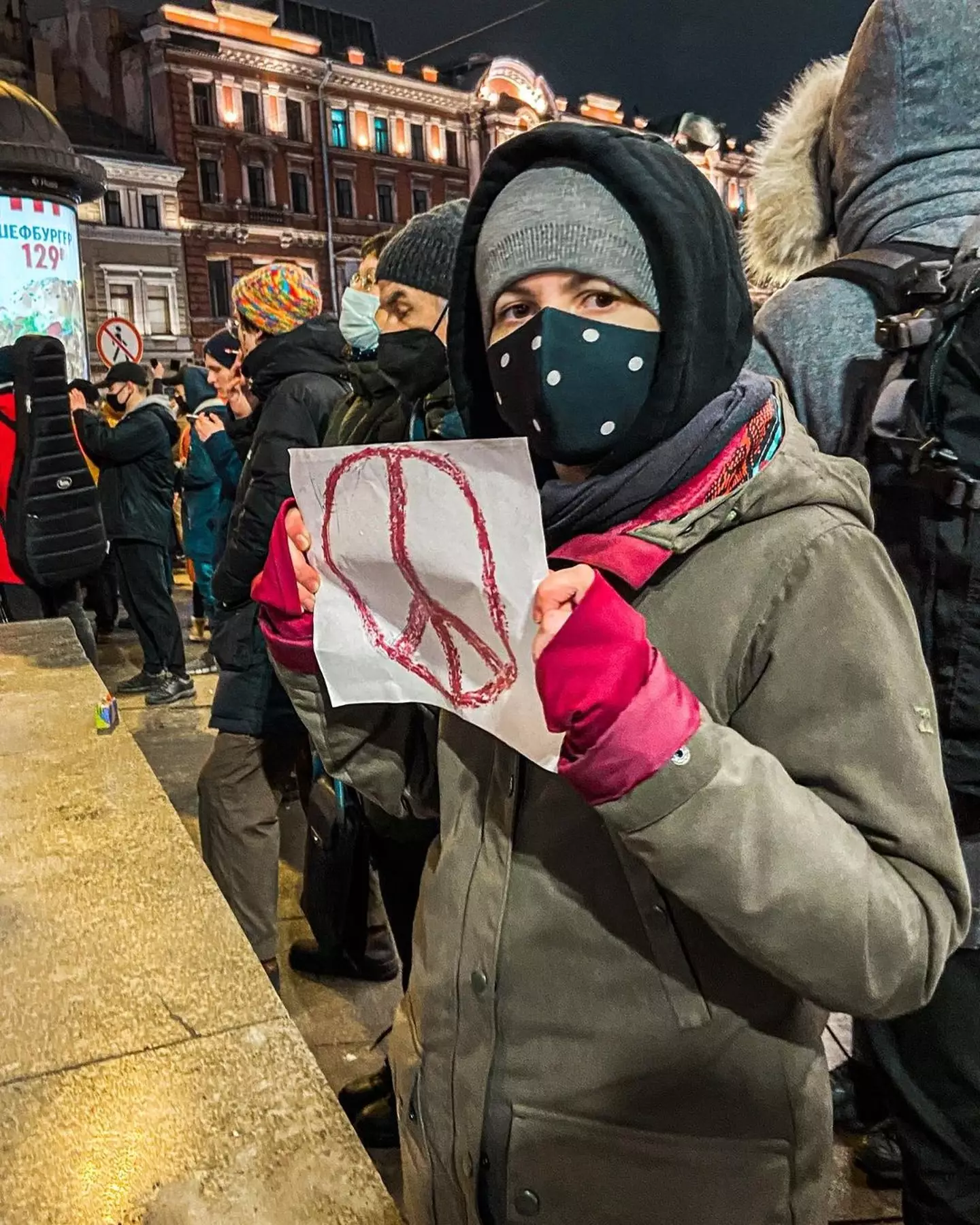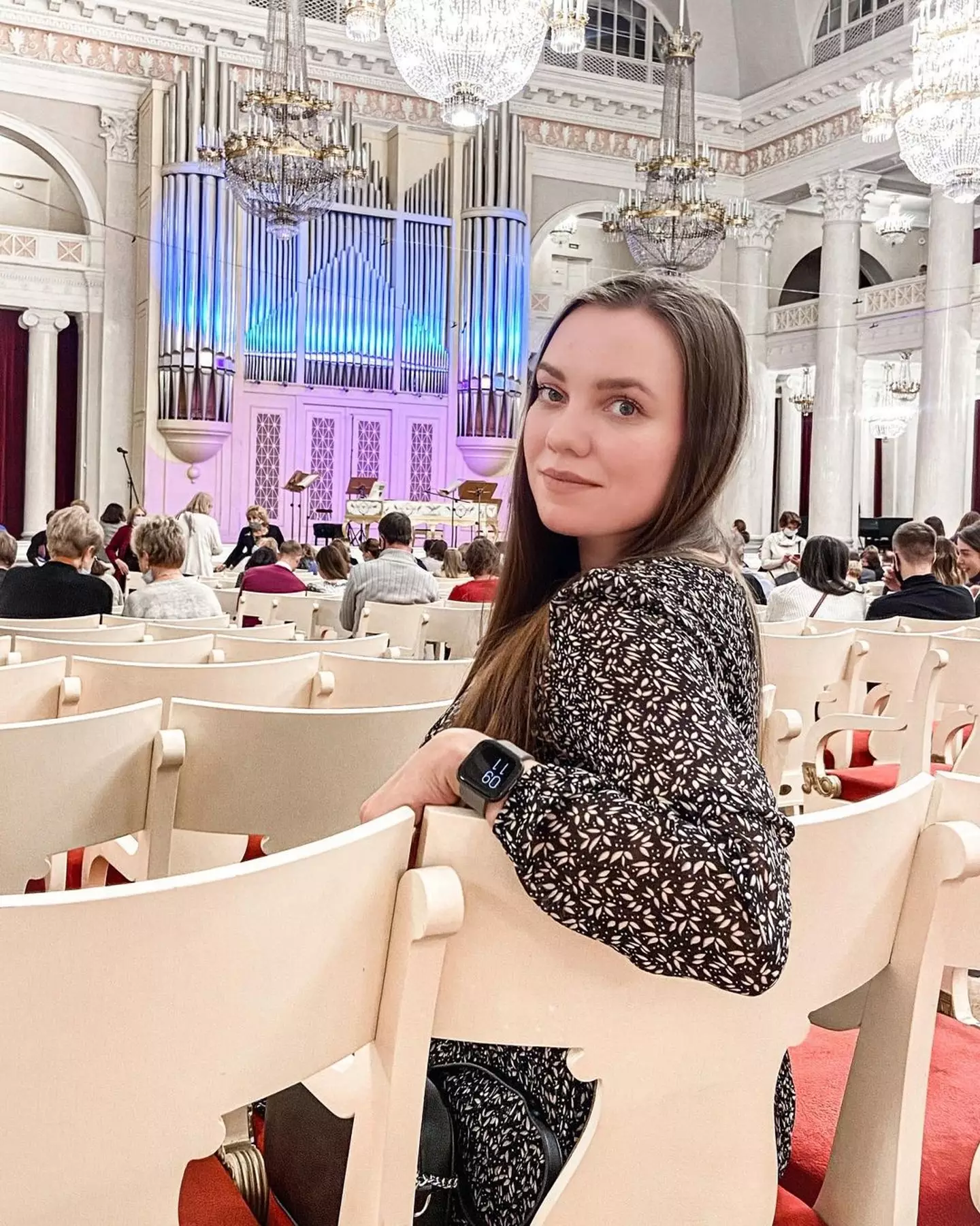
Konstantinova Natalia, known on TikTok as Natasha from Russia, is a 33-year-old blogger who lives and works in St Petersburg. Amid Russia’s invasion of Ukraine, UNILAD spoke with Natasha about what daily life is like for citizens in the country right now, and why she’s choosing to speak out despite the risks that come with it.
"Waking up on 24 February was like waking up to a nightmare. Despite what the Russian media told us, the outpour on social media revealed the truth: my country's military had entered Ukraine.
People are scared as sanctions continue to impact our economy. I’ve seen queues at ATM machines that issue foreign currency. People are desperately trying to withdraw money as the value of the ruble plummets.
Advert
As a blogger, my income comes from abroad, but I can’t get paid as our banks have stopped processing payments from PayPal.

This will only get worse now Visa and Mastercard have suspended operations in Russia. Many people here, including my friends and I, want to send money to our family members in Ukraine and elsewhere but we can't.
Major international shops have started to shut down such as IKEA and H&M, Apple has paused all sales in Russia, meaning Apple Pay services don't work with banks that are under sanctions right now. Car manufacturers such as Volkswagen have stopped exports and production in the country.
Advert
My dad has diabetes and we can’t find insulin in St Petersburg. Kind people from the online community have offered to send supplies, but there’s no way to receive post and vice-versa. Couriers such as DHL, UPS and FedEx have halted delivery to and from Russia and Belarus, so everything has to arrive by ship. We can’t wait the several months it would take for insulin to arrive, as it expires.
It’s the same situation for so many crucial services in Russia - if an X-ray machine breaks down or an engine stops working and its parts come from Europe, there’s no way to fix them.
The prices of things have been rising dramatically as a result. I saw one person post about a car that had gone from costing 1 million rubles (£6,000) to 5 million (£30,000) - it’s crazy.
Advert
Even for those who are unaware of the situation, who believe Russia is helping Ukraine, there’s no avoiding it. You jump in a taxi and hear stories about soldiers from the driver, you go to the shop and students are discussing where they can run to right now - there’s tension in the air.
When I take my daughter to school, I can see people on their phones, watching videos of the conflict.

Even for people like me who can see past the propaganda in the media, we didn't see it coming; we weren't expecting a conflict to break out. To witness this unfold and the pain and suffering it’s causing is just horrific.
Advert
I barely even remember the first day because I was just in shock. It was so disorientating waking up to see Russian forces bombing Ukrainian infrastructure. My friends and I experienced panic attacks; it’s like living in a nightmare that we can’t wake up from.
These feelings were amplified as people around me started to flee the country. Some left before the conflict began, especially my friends from overseas, but this just promoted investigation services to start stopping people at the borders to question them over their intentions.
They feel scared, and the same goes for Russians trying to flee - I know people who were turned away at the borders.
Even if I wanted to leave, the only places we can travel to right now are Turkey or the United Arab Emirates, and with so few flights going out of the country, the seats are expensive and the airports filled with queues.
Advert
Travelling by car is limited too; where I live in St Petersburg, my only options are Finland and Estonia, but both require Visas which I’m unable to access right now.
That being said, I’ve chosen to stay. Russia is my home country - my family and remaining friends are here, my daughter goes to school here.
After finding out about Russia’s operation, my friends and I decided to meet for coffee just to try and stay sane. What else were we going to do? We have to work, we have to take care of our children and we have to stay connected and try to help Ukrainians in any way we can.

While this is certainly unsettling to see unfold, nothing compares to the fear it creates by adding fuel to the propaganda and supporting Vladimir Putin’s goal to cut off Russian citizens from the rest of the world.
It’s been heart-wrenching to see the division amongst our society grow. An independent source says 56% of Russians support the conflict. The problem is that these people don’t know what’s happening there - they truly believe the military is freeing Ukraine from Nazis. If they knew the reality, if they were shown pictures and videos from inside Ukraine, they would join the rest of us in the resistance.
Instead they see shops shutting down, they see hate on social media, they see sanctions strangling our economy. And because all of our media is controlled by the state, this material is used as a tool to perpetuate further support for the conflict.
I’ve seen posts in which Russians are being turned away from cafes and shops, kids being threatened on social media for speaking their language. By creating this division, it’s just confirming what people here are shown by state media: that the West hates Russians.
I’ve had conflicts with my own family trying to show them the truth, and it’s the same amongst my friends, but the level of censorship and control is just too strong.
In the platforms that are still running, the propaganda has been taken to a worrying new level - my feeds are filled with either messages supporting the military operation or they have been censored. The government has restricted access to Twitter, Facebook has been blocked, and independent media continues to shut down.
Perhaps most symbolic of all has been the closure of Russia’s liberal radio station Ekho Moskvy (Echo of Moscow), which went into liquidation after a state censorship watchdog ordered its website to be blocked. The station was a beacon of truth, having survived the Soviet Union’s dying days even as Russia took an authoritarian turn - that it’s been taken off air amid recent events speaks volumes.
My friends and I are able to see the reality of the situation as we use a VPN, and I use my various platforms, including Twitter, Instagram and TikTok, to get the message out there.
Of course, I fear for my personal safety. As a Russian living in my home country, I’m not even allowed to say the word ‘invasion’ - it’s described as a ‘military operation’. So by promoting messages against Putin’s actions and the state-run media, I risk being detained.
A number of my friends have already been detained for protesting in St Petersburg. Even before the conflict, protesting was restricted - you have to get permission from the state.
Over the weekend I attended a demonstration and saw roads blocked by vehicles, police on every corner - the atmosphere was very tense.
Yet I take part in the protests for the same reason I want to share my truth - I refuse to be silenced in light of such atrocity. And I want people to know of my identity so that should something happen to me, at least they will know why.
My heart goes out to the Ukrainians who are suffering right now - it’s hard to see a future and I fear the worst is yet to come. But tackling hate with hate will get us nowhere. Right now we need solidarity, and I will continue to share this message until we wake up from this nightmare."
Disclaimer: The words 'war' and 'invasion' are outlawed in Russia in relation to the Ukraine conflict
If you would like to donate to the Red Cross Emergency Appeal, which will help provide food, medicines and basic medical supplies, shelter and water to those in Ukraine, click here for more information
Topics: Ukraine, Russia, World News